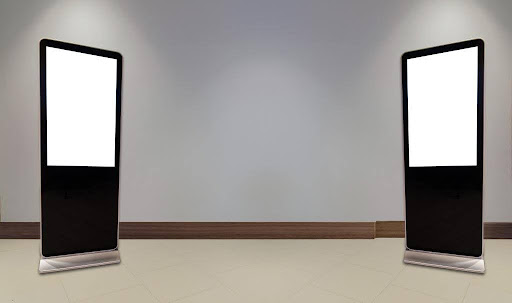In a world that’s becoming increasingly reliant on technology, GPS trackers have emerged as invaluable tools. These small, unassuming devices have a multitude of applications, ranging from personal to industrial. In this comprehensive guide, we’ll delve into the intricacies of GPS trackers, exploring how they work and their wide-ranging applications.
Table of Contents
Understanding the Basics
Before we dive into the fascinating applications of GPS trackers, it’s essential to grasp the fundamental principles behind their operation.
GPS, or Global Positioning System, is a network of satellites orbiting the Earth. These satellites continuously emit signals, allowing GPS devices to determine their precise location. GPS trackers, equipped with receivers, capture these signals and use the information to calculate their own location on the planet’s surface.
How GPS Trackers Operate
Satellite Communication
At the heart of GPS trackers is their ability to communicate with satellites. These devices receive signals from multiple satellites simultaneously. By analyzing the time it takes for these signals to reach them, GPS trackers or free sms trackers can pinpoint their location with remarkable accuracy.
Triangulation
GPS trackers employ a technique called triangulation. This involves receiving signals from at least three satellites and using the data to calculate the device’s latitude and longitude. The more satellites a GPS tracker can connect with, the more precise its location determination becomes.
Data Transmission
Once a GPS tracker has determined its location, it can transmit this data to a central server or a user’s device. This transmission can occur via various means, including cellular networks or satellite communication, depending on the device’s design and purpose.
Applications of GPS Trackers
Now that we’ve established the inner workings of GPS trackers, let’s explore the myriad ways they are put to use across different sectors.
1. Vehicle Tracking
GPS trackers are commonly used in the automotive industry for vehicle tracking. Fleet managers can monitor the location, speed, and routes of their vehicles in real-time, leading to improved efficiency and security.
2. Personal Safety
Individuals can use GPS trackers as personal safety devices. These small gadgets can be carried discreetly, providing a lifeline in emergencies. They enable quick and accurate location sharing with trusted contacts more about gnss constellations.
3. Asset Management
Businesses can keep a close eye on their valuable assets using GPS trackers. From construction equipment to shipping containers, these devices help prevent theft and streamline inventory management.
4. Wildlife Conservation
In the realm of wildlife conservation, GPS trackers have revolutionized our understanding of animal behavior. Researchers can track the movements of endangered species, gather data on migration patterns, and ensure their protection.
5. Geofencing
GPS trackers can create virtual boundaries known as geofences. These are widely used for security and notification purposes. When an object equipped with a GPS tracker enters or exits a geofenced area, alerts are triggered.
6. Navigation
Perhaps the most common use of GPS trackers is navigation. Whether you’re driving, hiking, or sailing, these devices provide turn-by-turn directions and ensure you never lose your way.
SMS Tracker for iPhone: A Niche Application
With the advent of smartphones, GPS technology has found its way into various mobile applications. One such niche application is the SMS tracker for iPhone, which utilizes GPS technology for specific monitoring purposes.
How SMS Tracker for iPhone Works
The SMS tracker for iPhone is a specialized software designed for parents and employers to monitor the text messages and location of the target device. Here’s how it operates:
- Installation: To use an SMS tracker on an iPhone, the software needs to be installed on the target device. This can usually be done remotely or with physical access to the device, depending on the specific tracker.
- Text Message Monitoring: Once installed, the SMS tracker records all incoming and outgoing text messages on the iPhone. This data is then made accessible to the person monitoring the device.
- Location Tracking: In addition to text messages, the GPS feature of the iPhone is used to track the device’s location. This allows parents to keep an eye on their child’s whereabouts or employers to monitor company-owned devices.
- Data Reporting: The recorded information, including text messages and location data, is typically sent to a secure online dashboard, which can be accessed by the person with monitoring privileges.
Why Use an SMS Tracker for iPhone?
Parents often use SMS trackers for iPhone to ensure their child’s safety and monitor their online interactions. Employers may utilize them to track the location and communication of company-owned devices. It’s essential to note that the use of such software should always comply with legal and ethical standards, and informed consent is typically required for monitoring.
In Conclusion
GPS trackers have become integral to our modern world, offering a wide array of applications that enhance safety, efficiency, and convenience. Understanding how these devices work and their diverse uses empowers us to make informed decisions about their adoption in various aspects of our lives. From personal safety to industrial applications, GPS trackers continue to shape our connected future.
The niche application of SMS tracking for iPhone highlights the adaptability of GPS technology, catering to specific monitoring needs while adhering to legal and ethical standards.
Remember, the power of GPS trackers lies not only in their technology but also in our ability to harness their potential for the greater good.
FAQs
Are GPS trackers accurate?
Yes, GPS trackers are highly accurate, with most consumer-grade devices offering location accuracy within a few meters.
Do GPS trackers require a subscription?
Many GPS trackers do require a subscription for access to real-time tracking and data storage services. However, there are also subscription-free options available.
Can GPS trackers be used indoors?
GPS trackers rely on signals from satellites, so they may not work reliably indoors. In such cases, alternative tracking technologies like Wi-Fi or Bluetooth may be used.
How long does the battery of a GPS tracker last?
The battery life of a GPS tracker varies depending on its size and usage. Some can last several weeks on a single charge, while others may need more frequent charging.
Can GPS trackers be used for theft recovery?
Yes, GPS trackers are often employed for theft recovery. When an item with a GPS tracker is stolen, its location can be tracked, aiding in its retrieval by law enforcement.





